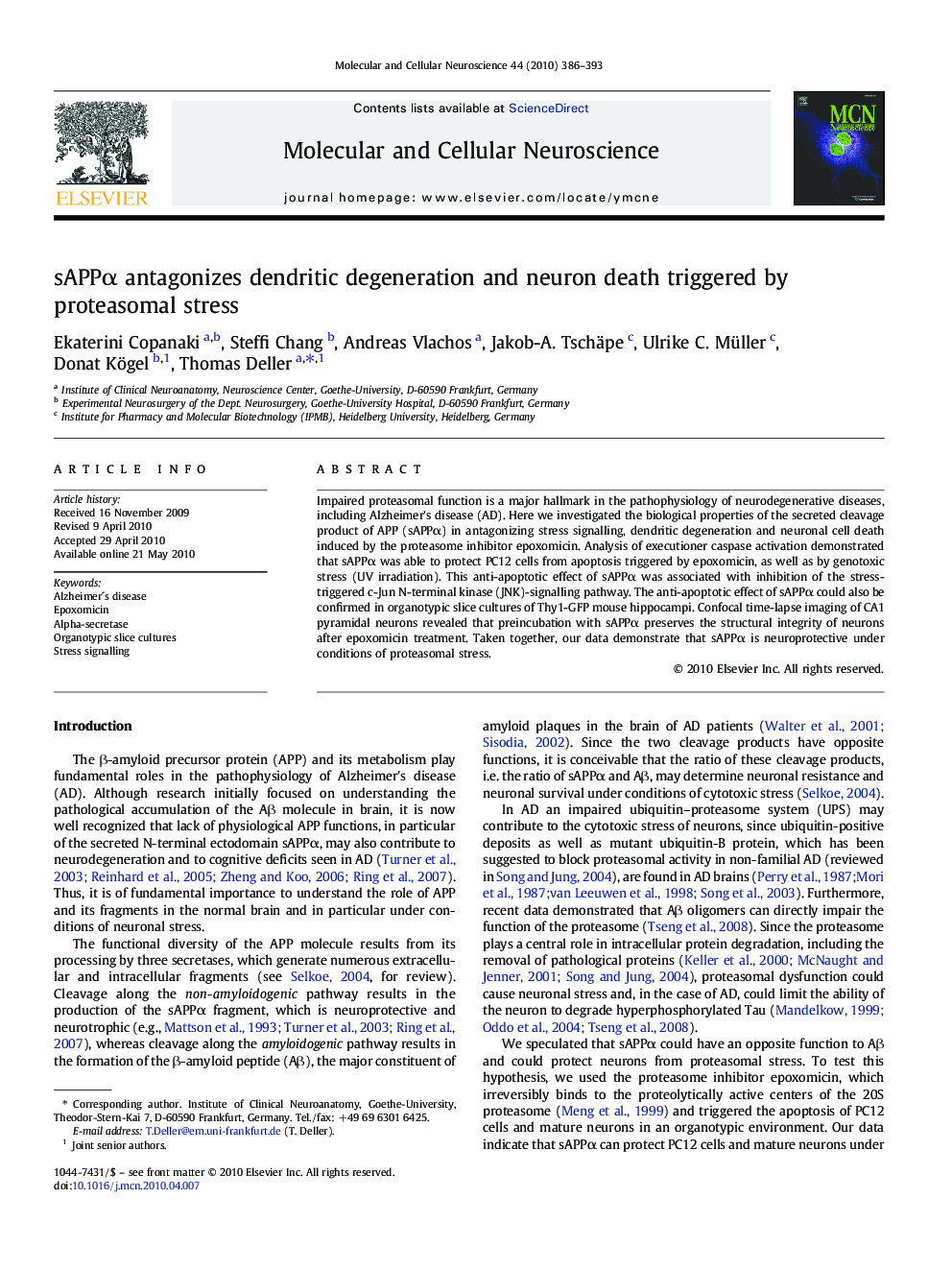| Article ID | Journal | Published Year | Pages | File Type |
|---|---|---|---|---|
| 2198778 | Molecular and Cellular Neuroscience | 2010 | 8 Pages |
Impaired proteasomal function is a major hallmark in the pathophysiology of neurodegenerative diseases, including Alzheimer's disease (AD). Here we investigated the biological properties of the secreted cleavage product of APP (sAPPα) in antagonizing stress signalling, dendritic degeneration and neuronal cell death induced by the proteasome inhibitor epoxomicin. Analysis of executioner caspase activation demonstrated that sAPPα was able to protect PC12 cells from apoptosis triggered by epoxomicin, as well as by genotoxic stress (UV irradiation). This anti-apoptotic effect of sAPPα was associated with inhibition of the stress-triggered c-Jun N-terminal kinase (JNK)-signalling pathway. The anti-apoptotic effect of sAPPα could also be confirmed in organotypic slice cultures of Thy1-GFP mouse hippocampi. Confocal time-lapse imaging of CA1 pyramidal neurons revealed that preincubation with sAPPα preserves the structural integrity of neurons after epoxomicin treatment. Taken together, our data demonstrate that sAPPα is neuroprotective under conditions of proteasomal stress.
